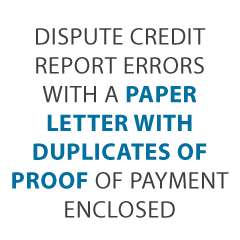Build a Wall Around Your Business Kingdom with a Strong Company Credit Report
Similar to building a kingdom, a strong company credit report does not happen overnight. It takes years of hard work and dedication to build a business credit score and report you can be proud of. You have to start from the bottom, with basically nothing, and work methodically through a process. It isn’t a hard process, but it does take time, which means you need to start as soon as possible.
In the long run, it is completely worth the time and dedication necessary to build a solid company credit score, because once you do, your business and your personal assets are both protected. Your business has the power of strong business credit on its side. Your personal finances, on the other hand, will be unaffected by any enemy that may attack the business. It’s a win-win.
So how do you do it? Where do you start? What does it really take to build a company credit report you can be proud of?
Conquer the Land: Business Fundability™
Establishing small business credit is a process, and it does not happen automatically. A company will need to proactively work to establish business credit. Nonetheless, it can be done readily and quickly, and it is much more rapid than developing personal credit scores.
Before you can ever begin building a kingdom, you must first conquer the land for yourself. In company credit report terms, that means making your business fundable. There are a few things you need to do to make this happen.
- You need a professional-looking website and email address. The website address needs to be bought from a supplier such as GoDaddy. In addition, the email address needs to have the same URL. It shouldn’t be a from a free email platform like Yahoo or Gmail.
- Company telephone numbers should be different from your personal numbers
- Additionally, the company phone number should be toll-free.
- A business bank account devoted strictly to the company is always a must.
- Visit the IRS web site and get an EIN for the company. It’s
- Formally incorporate. This means organizing as an LLC, S-corp, or corporation. You cannot operate as a sole proprietorship or partnership and build business credit properly. The option you choose should be based upon the level of protection and the tax benefits that you need. For company credit report purposes, they all work the same.
- Head over to the D&B website and obtain a totally free D-U-N-S number. A D-U-N-S number is how D&B gets a small business into their system to generate a PAYDEX score. If there is no D-U-N-S number, then there is no record and no PAYDEX score.
Gather the Loyal: Your Company Credit Report Fortress
Usually you have to have credit to get credit. When building a kingdom, you need your inner circle. There are always those few that are loyal to your cause before they have any reason to be. For building a strong company credit report, your inner circle is going to be composed of starter vendors.
These are vendors from the vendor credit tier that will help you out before you even have a business credit score. They are your jumping off point once your business is fundable.
Terms are, in most cases, Net 30. This is in contract to the more common revolving credit. However, they will report your payments to the credit reporting agencies, which is what you need to start building a company credit report. If you have followed the fundability steps listed above, you will have a credit profile at the credit reporting agencies when these vendors report your accounts.
The vendors sell the things bought all the time in the normal course of business, including marketing materials, shipping boxes, outdoor work wear, ink and toner, and office furniture.
Recruiting for Your Cause in the Vendor Credit Tier
To begin your business credit profile the proper way, you need to get approval for vendor accounts that report to the business credit reporting agencies. Once that’s done, you can make use of the credit.
But not every vendor can help like true starter credit can. It is important to work with those merchants that will grant an approval with marginal effort. You also want them to be reporting to one or more of the big three CRAs: Dun & Bradstreet, Equifax, and Experian.
You may have to apply more than one time to these vendors. Here are some great options to start with: https://www.creditsuite.com/blog/5-vendor-accounts-that-build-your-business-credit/
 Uline Shipping Supplies
Uline Shipping Supplies
Uline Shipping Supplies is a true starter vendor. They sell shipping, packing, and industrial supplies, and report to D&B.
You must have a D-U-N-S number. They will request 2 references and a bank reference. The first few orders may need to be paid in advance to initially get approval for Net 30 terms.
Grainger Industrial Supply
Grainger Industrial Supply is another true starter vendor. They sell safety equipment, plumbing supplies, and more. They report to D&B. You will need to have a business license, EIN, and a D-U-N-S number.
For less than a $1000 credit limit they will approve virtually any person with a business license.
Accounts That Don’t Report
Non-Reporting Trade Accounts can also be helpful. While you do want trade accounts to report to a minimum of one of the credit reporting agencies (CRAs), a trade account which does not report can be of some value.
You can always ask non-reporting accounts for trade references. Also, credit accounts of any sort should help you to better even out business expenses, thus making budgeting simpler. These are providers like PayPal Credit and T-Mobile.
Retail Credit Tier
Once there are 3 or more vendor trade accounts reporting to at least one of the CRAs, then move to the retail credit tier. These are service providers.
Fleet Credit Tier
Once you have 8 to 10 accounts reporting from the retail credit tier, you can move on to the fleet credit tier. Use this credit to purchase fuel, as well as to repair and maintain vehicles.
Shell is an example of a company in the fleet credit tier. They report to D&B and Business Experian. They want to see a PAYDEX Score of 78 or higher and a 411-business telephone listing.
Shell might claim they want a particular amount of time in business or profits. However, if you already have enough vendor accounts, that won’t be necessary. You can still get an approval.
Cash Credit Tier
When you have enough accounts reporting from all the other tiers, you can start to apply for cards in the cash credit tier. These are business versions of standard Mastercard, Visa, and American Express cards. They will come with higher limits and lower rates if you have followed the previous steps and kept up with payments.
Why Is a Strong Company Credit Report Important?
Why build a strong credit kingdom in the first place? Is it really worth it, especially if you already have solid personal credit? Yes!
Company credit is credit in the business name. It doesn’t connect to a business owner’s consumer credit at all if things are set up properly. This means a business owner’s business and consumer credit scores can be very different.
Considering that company credit is independent from the individual, it helps to safeguard a small business owner’s personal assets in the event of a court action or business insolvency.
In addition, even if you make payments on time, running business expenses through personal credit can wreak havoc on personal credit scores. This is because business expenses are typically larger than personal expenses, but personal credit limits are much lower than business credit limits.
As a result, business expenses can keep you close to personal limits consistently. That means your debt-to-credit ratio goes up, which can make your personal credit score go down.
Additional Tips for Building Your Company Credit Report
As you work through this process, here are some things to remember:
- Make all payments on time. If you do not do this one thing, the rest doesn’t matter. Bad business credit will not help you, and if you don’t pay on time, that is exactly what you will have.
- When applying for business credit, use your EIN. You may have to use your SSN for identification purposes, but not for the credit check.
- Use credit wisely. You do not have to use all you have. Don’t buy things you don’t need or use so much that you cannot make payments.
- Make sure your information is updated as needed. If your contact information changes, get that information to the credit agencies.
Once you build a company credit report you can be proud of, you need to keep it that way. Here’s how.
Stay in the Lookout Tower: Monitor Your Business Credit
Keep an eye on what is happening with your credit. Make certain it is being reported, and deal with any mistakes as soon as you can. We can help you monitor business credit at Experian, Equifax, and D&B for considerably less.
Take Down Enemies Before They Reach the Gate: The Purpose of Company Credit Report Monitoring
What are you looking for? You are looking for mistakes on your report. Your mission is to take down the enemy and repair any damage done. Errors in your credit report(s) can be corrected, but you have to dispute in a particular way. Generally, this means you mail a paper letter with copies of any proof of payment with it. These are documents like receipts and cancelled checks. Never send the originals. Always mail copies.
Itemize any charges you challenge, and make your letter as clear as possible. Be specific about the concerns with your report. Use certified mail so that you will have proof that you mailed in your dispute.
How Do You Build a Company Credit Report You Can Be Proud Of? Trust the Process
While it isn’t necessarily hard, it is a lengthy and specific process. Your company credit report doesn’t just appear when you open your first account. You must have things set up properly to separate your business from yourself.
Then, you must be intentional about finding accounts in the vendor credit tier. Patience is necessary to build accounts in each credit tier so that you can continue to move through the process. As you do, be certain you do not sabotage yourself by missing payments. Use your credit wisely and you will soon see that you have the credit you need to run a successful business.
Once you have your business credit report where you want it, keep it that way with credit monitoring. Stay on top of accounts reporting and ensure that your report is accurate and complete. Then, you will be able to access the funding you need for your business, when you need it. Your credit kingdom will be a solid fortress than no foe can penetrate.


